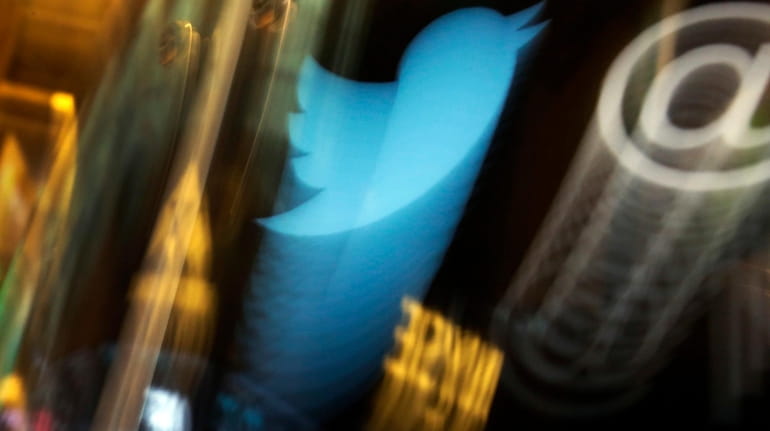Bitcoin Twitter hack should scare you

The Twitter logo appears on an updated phone post on the floor of the New York Stock Exchange. Hackers broke into the Twitter accounts of world leaders, celebrities and tech moguls in one of the most high-profile security breaches in recent years, highlighting a major flaw with the service millions of people have come to rely on as an essential communications tool. Credit: AP/Richard Drew
There are plenty of partisan reasons to be worried about November’s election. That’s typical, in a political environment as heated as this one. But now a whopping bipartisan concern has emerged with last week’s big Bitcoin Twitter hack.
Sure, this appears to have been a money grab. The hackers took control of the Twitter accounts of a who’s-who of wealthy and/or well-known individuals and companies — like Joe Biden, Barack Obama, Bill Gates, Elon Musk, Warren Buffett, Jeff Bezos, Kanye West, Apple and Uber — and invited people to deposit Bitcoin into a particular account with the promise of getting double their money back. The scam netted more than $100,000.
Pity or scorn those conned as you must, but be grateful that money apparently was the only goal. Because it could have been so much worse.
Take the obvious example. President Donald Trump’s Twitter account announces the launch of a nuclear strike on North Korea. Knowing the president’s proclivity for erratic behavior, North Korea assumes the tweet is real and responds with its own hair-trigger volley. And we’re at war.
Now consider the mayhem that could ensue as a result of seemingly factual tweets from hijacked accounts on Election Day. Imagine the reaction among the public if:
- A polling company tweets that Trump leads handily in exit polling in Pennsylvania, but when the votes are counted Biden wins.
- The clerk in Macomb County, Michigan, tweets that several polling sites are closed — due to the coronavirus or malfunctioning voting machines or a fire — and numerous voters stay home, skewing results in a pivotal county in a pivotal state.
- A Division of Elections official in swing state Florida tweets that thousands of mail-in ballots were lost by the U.S. Postal Service.
- A state official in purplish Georgia tweets that voters need a photo I.D., birth certificate and utility bill to prove place of residence to cast a ballot.
A hostage Twitter account could tweet out false poll closing times, fake reports of voter fraud, an alarming health report about Biden, a criminal indictment of Trump, or false inflammatory quotes from either man. The Bitcoin scam shows people are gullible, and the false information could prove difficult to correct quickly; Twitter shut down parts of its network for hours to deal with last week’s hack.
Don’t think it could happen? In 2013, when the hacked Twitter account of The Associated Press tweeted falsely that the White House was being attacked, the stock market plunged before the ruse was exposed.
Fake Election Day tweets, even when shown later to be false, would undermine confidence in our elections, the goal of Russia’s long-running disinformation campaign and a consummation devoutly wished for by numerous other hostile nations. Trump himself has fanned those flames, claiming without evidence that 2020 will be the “greatest Rigged Election in history.” He made the claim, of course, on Twitter.
How last week’s hack was accomplished is critical for stunned security professionals to understand, but less important for the rest of us, for whom the dawning realization must be that we — individually and collectively — are more vulnerable than we thought.
Absent communication lies confusion. Absent accurate communication lies chaos. We have created the vehicles that torment us. Will the Twitter hack take its place among the fake social media accounts that influenced the 2016 election and the deepfake and other deceptively edited videos that are part of the ongoing war on truth and authenticity?
Our elections are the front door of our democracy, the embodiment of our peaceful transition of power. Voting is among our most cherished rights. Bad actors, here and abroad, old and new, tell us those are things we cannot take for granted.
Michael Dobie is a member of Newsday's editorial board.

